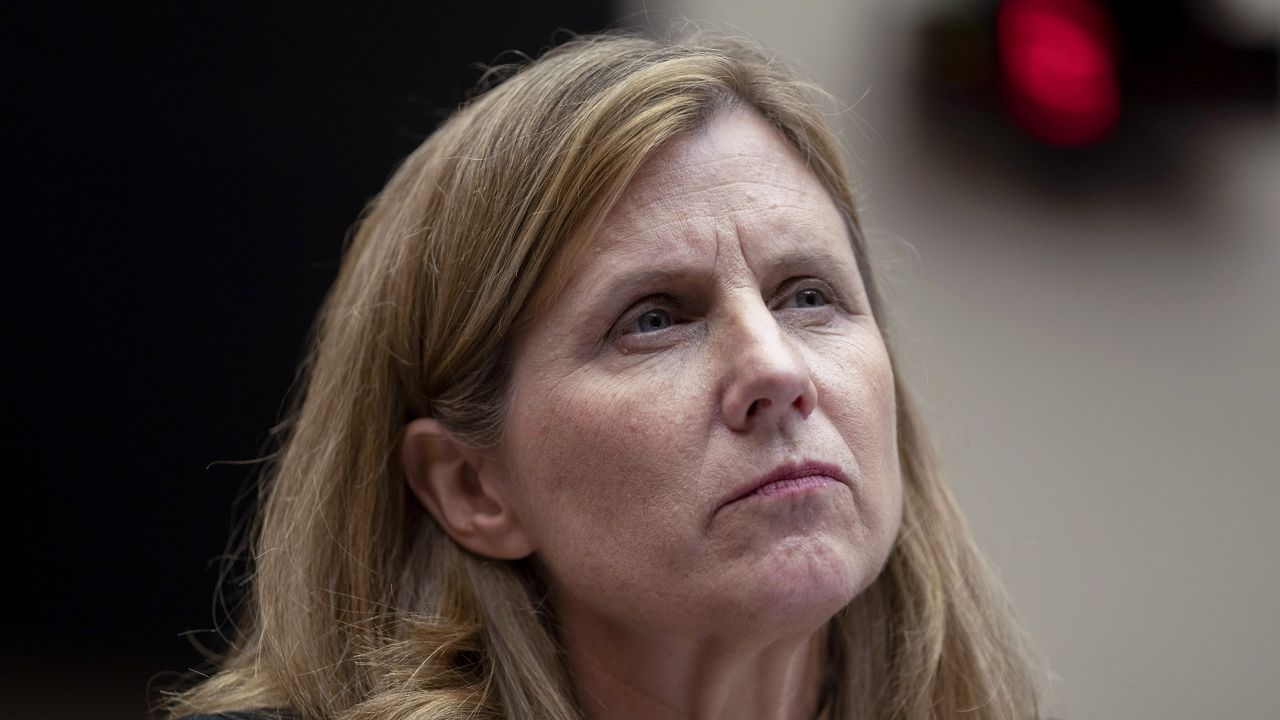Liz Magill, the president of University of Pennsylvania, stepped down from the helm of the Ivy League school Saturday just days after testifying at a congressional hearing about antisemitism. Her testimony drew intense criticism from alumni, donors and other officials.
"It has been my privilege to serve as President of this remarkable institution," Magill said in a statement. "It has been an honor to work with our faculty, students, staff, alumni, and community members to advance Penn's vital missions."
Her resignation follows criticism over her testimony at a congressional hearing, during which she was unable to say under repeated questioning that calls on campus for the genocide of Jews would violate the school's conduct policy.
Magill will remain on staff as a tenured faculty member at Penn Carey Law. She has agreed to keep serving as Penn’s leader until the university names an interim president.
The chairman of the Ivy League school's board of trustees, Scott Bok, also resigned, the university said Saturday evening, just hours after Bok announced Liz Magill's departure as president in just her second year.
"On behalf of the entire Penn community, I want to thank President Magill for her service to the University as President and wish her well," Bok said in the announcement.
House Republican Conference Chair Elise Stefanik, whose questioning led to the widely viewed and highly criticized responses from the presidents of UPenn, Harvard and MIT, said Magill’s resignation is “the bare minimum of what is required” in a statement Saturday.
"This is only the very beginning of addressing the pervasive rot of antisemitism that has destroyed the most ‘prestigious’ higher education institutions in America," Stefanik said.
"Harvard and MIT, do the right thing," she continued. "The world is watching."
Criticism rained down from the White House, Pennsylvania Gov. Josh Shapiro, members of Congress and donors. One donor, Ross Stevens, threatened to withdraw a $100 million gift because of the university’s “stance on antisemitism on campus” unless Magill was replaced.
A day later, Magill addressed the criticism, saying in a video that she would consider a call for the genocide of Jewish people to be harassment or intimidation and that Penn’s policies need to be “clarified and evaluated.”
Magill had been under fire from some donors and alumni this fall over the university’s handling of various perceived acts of antisemitism.
That included allowing a Palestinian literary arts festival to be held on its campus in September featuring speakers whose past statements about Israel had drawn accusations of antisemitism.
A former U.S. Supreme Court law clerk, Magill, 57, is the daughter of a retired federal judge and was dean of Stanford University’s law school and a top administrator at the University of Virginia before Penn hired her as its ninth president last year.
Earlier Saturday, New York’s governor called on the state’s colleges and universities to swiftly address cases of antisemitism and what she described as any “calls for genocide” on campus.
In a letter to college and university presidents, Gov. Kathy Hochul said her administration would enforce violations of the state’s Human Rights Law and refer any violations of federal civil rights law to U.S. officials.
Hochul said she has spoken to chancellors of the State University of New York and City University of New York public college systems who she said confirmed “that calling for genocide of any group” or tolerating antisemitism violates codes of conduct on their campuses “and would lead to swift disciplinary action.”
The governor’s letter doesn’t address any specific incidents. Her office didn’t immediately respond to an email seeking comment.
A popular chant at pro-Palestinian rallies at Penn and other universities has been falsely misrepresented in recent months as claiming to call for “Jewish genocide.”
Experts and advocates say the chant, “Israel, we charge you with genocide,” is a typical refrain heard at pro-Palestinian rallies. Jewish and Palestinian supporters both acknowledge protesters aren’t saying “We want Jewish genocide.”



